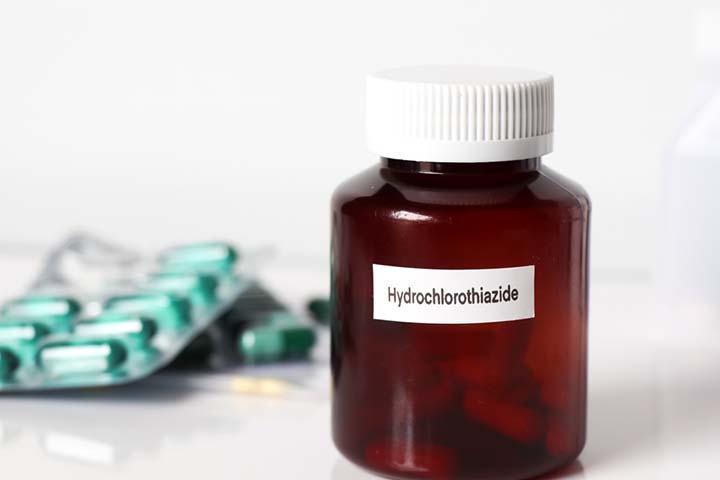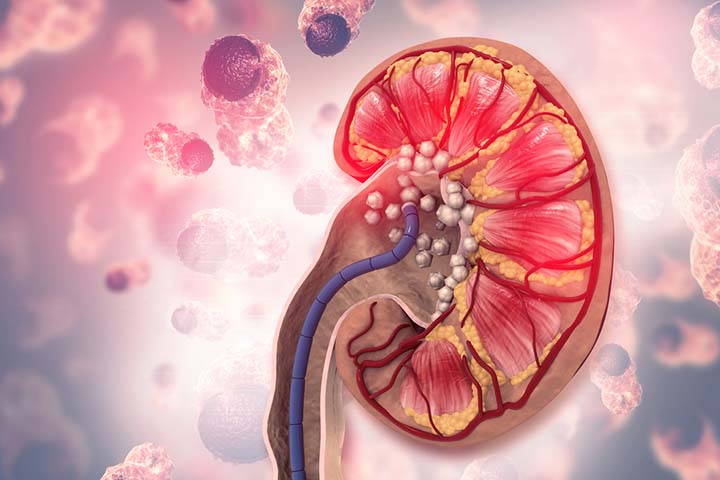Find out Is Hydrochlorothiazide Safe To Take While Breastfeeding? Hydrochlorothiazide is prescribed to some breastfeeding mothers who experience fluid retention in order to ease their discomfort. However, the majority of lactating women could worry about how hydrochlorothiazide will affect nursing.

Although hydrochlorothiazide is excreted in breast milk, it has no harmful effects on the unborn child when taken in little doses. However, before using the medication, you must share your worries about its safety with your doctor.
Learn more about the advantages and drawbacks of hydrochlorothiazide while breastfeeding in this article, as well as the safe dosages suggested for lactating mothers.
What Is Hydrochlorothiazide (HCTZ)?
A drug called Hydrochlorothiazide, often known as Microzide, is effective at treating water retention. The medication is well-known as a diuretic and aids in lowering edema and excessive fluid retention in your body when you are nursing. Effective treatment for additional medical disorders like high blood pressure is provided by hydrochlorothiazide.
Is Hydrochlorothiazide Safe To Take While Breastfeeding?
Yes! While breastfeeding, using hydrochlorothiazide is safe as long as you stick to low doses. You can nurse your infant while taking a little amount every day, such as 25 milligrams or even less. Despite the medicine passing into breast milk, its tiny concentration has no negative effects on your precious child.
Additionally, hydrochlorothiazide has little effect on lactation. The amount of the drug that reaches your newborn is lessened if you take the prescription right before the longest stretch of sleep for your baby. To reduce the risk of any adverse effects while nursing, talk to your doctor and take the medication only in the amounts suggested.
When using hydrochlorothiazide, doctors may urge you to follow a low-sodium, high-potassium diet.
Hydrochlorothiazide Breastfeeding – The Health Benefits
When given in the proper amounts while nursing your baby, hydrochlorothiazide has several positive health effects. Benefits comprise:
1. Minimizes water retention
Hydrochlorothiazide, a diuretic, lowers water retention in your body while you are nursing your child. The medication reduces your risk of developing any health issues caused by water retention in your body, including pain, inflammation, soreness, and other illnesses. The drug has a very high success rate in treating liver cirrhosis-related edema. The prescription also prevents fluid retention and swelling in your body brought on by nephritic syndrome, congestive heart failure, and corticosteroid use.
2. Treats kidney stones
Health issues brought on by kidney stones can be effectively treated with hydrochlorothiazide. The medication reduces the volume of calcium that the kidneys pass through the urine. Additionally, the medication reduces the amount of calcium in your body that contributes to kidney stone formation when you are nursing.
3. Promotes weight loss
Hydrochlorothiazide aids in weight loss by reducing excessive fluid retention and the danger of edema in your body. Therefore, taking the medication while caring for your precious child helps you shed the extra weight.
4. Treats diabetes insipidus
As a diuretic, hydrochlorothiazide is very efficient in treating diabetes insipidus, a rare form of diabetes brought on by a shortage of the pituitary hormone vasopressin, which regulates kidney function.
5. Treats hypertension
While breast-feeding, hydrochlorothiazide relieves hypertension. Taking the medication in doses ranging from 12.5 mg to 50 mg significantly lowers high blood pressure. Consult your physician and take the recommended modest dose of the medication.
Side Effects Of Hydrochlorothiazide (HCTZ) While Breastfeeding
Although taking hydrochlorothiazide while nursing has several health benefits, taking too much or the wrong dose of the medication can cause you to have negative effects.
Possible negative effects include:
- Loss of appetite
- Hair loss
- Diarrhea
- Rash
- Difficulty in breathing
- Unusual bleeding
- Sore throat
- Muscle weakness
- Cramps
- Thirst
- Headache
- Skin sensitivity
- Dizziness
- Pain in stomach
- Nausea
- Vomiting
- Fever
Caution
Avoid prolonged sun exposure while taking hydrochlorothiazide, or wear sunscreen-protective gear including hats, sunglasses, and clothes. The medication increases the risk of skin cancer and makes the skin more susceptible to sunlight.
Take the diuretic Hydrochlorothiazide without risk if you have fluid retention or swelling in your body while nursing. Additionally, it can aid with weight loss, kidney stones, hypertension, and diabetic insipidus.
HCTZ does enter breast milk, but not in sufficient quantities to harm your infant, and it does not prevent or hinder nursing in moms. However, it is advised to see a doctor before taking the medication while nursing to prevent any side effects such as muscle cramps, stomach pain, headaches, and thirst.






